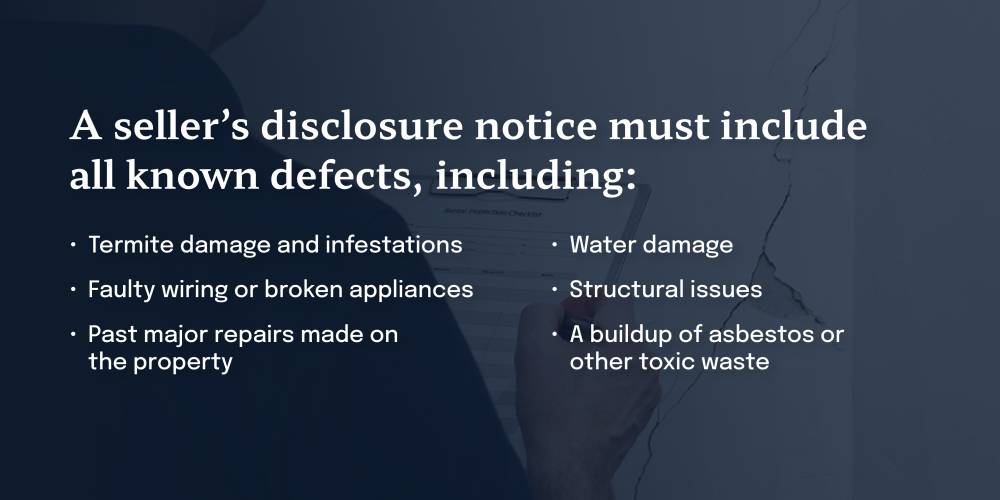Understanding the Texas Seller’s Disclosure Notice Requirements
 Selling your home is a massively important transaction. While you may be eager to move forward with the sale, you should know that the state of Texas has disclosure laws that must be followed closely. To ensure compliance with the seller’s disclosure notice requirements, reach out to a San Antonio, TX residential real estate attorney.
Selling your home is a massively important transaction. While you may be eager to move forward with the sale, you should know that the state of Texas has disclosure laws that must be followed closely. To ensure compliance with the seller’s disclosure notice requirements, reach out to a San Antonio, TX residential real estate attorney.
Geoff Mayfield, Attorney at Law is prepared to represent you in the sale of your property to protect your rights and interests. We will make sure all the paperwork is filed correctly and that all defects are identified. With over 15 years of legal experience, Attorney Geoff Mayfield has provided practical legal advice for many homeowners across San Antonio and the surrounding areas.
Are You Subject to Seller Disclosure Laws?
Sellers of "previously occupied single family residences" are required to provide a seller’s disclosure notice, according to the Texas Real Estate Commission (TREC). Your disclosure notice should be provided alongside the contract for the sale of the house. This notice must be provided before the buyer enters into a purchase agreement.
There are some situations where a disclosure is not required. For instance, if a house is transferred between co-owners or sold during foreclosure, the seller will be exempt from the usual disclosure requirements.
What Do You Have to Include in Your Disclosure?
A seller’s disclosure notice must include all known defects of the real estate property. Some of these defects may include:
-
Water damage
-
Structural issues
-
Termite damage and infestations
-
A buildup of asbestos or other toxic waste
-
Faulty wiring or broken appliances
-
Past major repairs made on the property
A disclosure notice may include more than just physical defects. It should also mention any fees associated with a homeowner’s association, as well as any lawsuits on the property. Note that you do not need to include information about deaths on the property, as long as it is unrelated to the condition of the home. Similarly, you are under no obligation to disclose if a previous resident had HIV or AIDS.
What Happens if a Buyer Finds a Defect in the Property?
As part of your disclosure, you must include information about all known defects on the property. If the buyer discovers a defect that was not properly disclosed, he or she may be able to seek certain remedies. Depending on when the buyer discovered the defect, he or she may be able to back out of the purchase.
In other cases, the buyer may ask the seller to provide compensation for damages. The buyer could bring a claim forward under the Texas Deceptive Trade Practices Act if you hid information that, if discovered, would have caused the buyer not to proceed with the transaction (Texas Business and Commerce Code Sec. 17.46).

Could I Be Sued for Failing to Disclose a Defect?
Failing to disclose a known defect could expose you to a lawsuit by the buyer. As such, it is important that you provide a thorough, honest disclosure about the state of the property. If your case escalates to litigation, the buyer will have to prove that you did not fulfill your duties as a seller and that your breach of duty resulted in damages.
If you are accused of fraud or misrepresentation, get in contact with a residential real estate attorney immediately. Our attorney can look for ways to resolve the dispute amicably, but if needed, we can advocate for you in a court of law.
What if You Do Not Know About a Defect on Your Property?
A critical thing to understand is that you can only be held liable for failing to disclose "known" defects on the property. You do not have to pay for an inspection to fulfill your disclosure requirements. If you can prove that you were not aware or reasonably could not have known about a defect, you could be protected from litigation.
To be more specific, state law provides that you are only required to disclose defects to "the best of [your] belief and knowledge" (Texas Property Code Sec. 5.013). On the form, you are allowed to answer "unknown" if you are not sure about the property’s exact condition.
Does an "As Is" Clause Protect You From Liability?
When you sell a house "as is" in Texas, it means that you are selling the house in its present condition, with the buyer assuming responsibility for repairs or renovations. This can make a sale more convenient, as it can free you from certain obligations to the buyer after purchase.
However, keep in mind that merely including an "as is" clause is not a substitute for a proper disclosure. If you knowingly fail to disclose a defect on a property, you could still be held liable for the buyer’s damages. Our attorney can help you draft a strong purchase agreement in addition to a disclosure notice.
How a Lawyer Can Help You Meet Disclosure Requirements in Texas
If you are considering selling your home, you may be tempted to keep things between you and the buyer for a more informal purchase. This may seem like the less complicated option, but in the long run, it is often better to rely on the counsel of a real estate attorney.
A residential real estate lawyer can go over the disclosure requirements with you step-by-step. Furthermore, having an attorney at your side can speed up the process, reviewing and filing all of the paperwork on your behalf. Geoff Mayfield, Attorney at Law can assist with all other aspects of a real estate transaction, including title searches and transfer of ownership.
Contact a San Antonio, TX Residential Real Estate Attorney
The sale of your home should be handled with proper diligence. To protect yourself from allegations of misrepresentation or fraud, consider working with a Comal County, TX real estate sales lawyer. Geoff Mayfield, Attorney at Law can help you fulfill your obligations, making sure that the transaction meets TREC’s standards for disclosure.
Our solo practitioner can provide you with dedicated counsel and advocacy. To get started with a free initial consultation, call our offices at 210-535-0870 today.

 8531 N. New Braunfels Ave, Suite 100, San Antonio, TX 78217
8531 N. New Braunfels Ave, Suite 100, San Antonio, TX 78217 210-535-0870
210-535-0870




